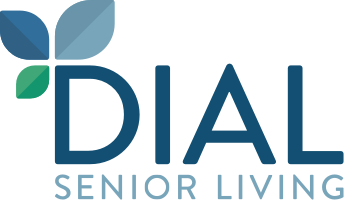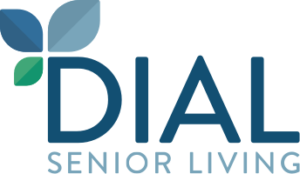Navigating the world of senior living with its unique set of terms and concepts can be challenging. This glossary is designed to help you better understand the language associated with senior living. Whether you’re a family member exploring options for a loved one or an individual considering senior living for yourself, our goal is to empower you with knowledge as you embark upon this important journey.
Activities of Daily Living (ADL)
Daily self-care activities, such as dressing, bathing, eating, toileting and taking medication. The degree of assistance that seniors need with ADLs can dictate the appropriate type of care they need in senior living.
Aging in Place
Concept of remaining in one’s home regardless of changes in health or care needs. This can take place in a senior living community or one’s home.
Ambulatory
Ability to walk independently, including walking with the use of an assistive device like a cane or walker.
Americans with Disability Act (ADA):
Devised in 1990, this act serves to protect the civil rights of the disabled.
Assessment
Determination of care needs based upon a formal structured evaluation of the resident’s physical and psychological condition and ability to perform activities of daily living.
Assisted Living
Type of care level offered at a senior living community in which residents receive help with activities of daily living based on their unique needs. Services can include meals, transportation, housekeeping, medication management, laundry and social activities.
Care Plan
Specific process that identifies a resident’s current needs and outlines a plan for all the services and support required. These details include goals, who will care for the resident, when care is provided, and other important details.
Caregiver
Any person who provides assistance with activities of daily living tasks to another individual. A caregiver can be a family member, a friend or a medical professional. A primary caregiver is the person most responsible for assisting an individual.
Certified Nursing Assistant (CNA)
Someone who provides direct assistance with activities of daily living and other healthcare needs to residents under the supervision of a nurse or other healthcare provider. CNAs are also known as nursing assistants or nurse’s aides.
Continuing Care Retirement Communities (CCRC)
Senior living community that offers multiple levels of care (referred to as a continuum of care) from independent living through assisted living and skilled nursing, providing a long-term care option for seniors who want to age in place.
Continuum of Care
System where seniors have all levels of care available within a single community so that their current and future needs are provided within the same place.
Cueing
Assisting a person who is cognitively impaired with activities of daily living.
Dementia
Loss or diminishing of cognitive functions, such as memory, reasoning and thinking, that interferes with a person’s daily functioning. There are numerous types of dementia, including Alzheimer’s disease, Parkinson’s disease and others.
Director of Nursing (DON)
Registered nurse who is responsible for all nursing care in a community and who also communicates with residents, their families and physicians as needed.
Executive Director
Professional responsible for overseeing the overall management and operations of a senior living community or facility. This position is also sometimes referred to as Administrator.
Guardianship
Legal relationship where an individual has the authority to make critical decisions on behalf of an elderly individual.
Gerontology
Scientific study of the biological, psychological and social effects of aging.
Hands-On Assistance
Physical assistance from a medical care professional that allows elderly adults to perform activities of daily living.
Health and Rehabilitation Center
Residential setting in which a range of nursing and medical services are provided to residents.
Home Health Care
Nursing or other medical care provided to an individual in their home by a licensed professional.
Hospice Care
Services that provide end-of-life care to terminally ill patients and their families.
Independent Living (IL)
Senior living community designed for seniors who wish to live independently and require minimal or no assistance with daily activities.
Levels of Care (LOC)
Amount of assistance a senior needs with activities of daily living and other medical support.
Licensed Practical Nurse (LPN)
Licensed professional who provides basic nursing care to residents under the supervision of an RN or physician.
Life Enrichment Program
Variety of activities developed to target holistic well-being and enhance the quality of life for residents in a senior living community.
Living Will
Legal document stating, in advance, an individual’s wishes concerning the use of life-saving devices and procedures in the event of terminal illness or injury, should the individual no longer be competent.
Long-Term Care (LTC)
Services provided to a senior over a long period of time to help them live as independently and safely as possible.
Managed Care
Partnership between an insurance provider and a health care system put in place to coordinate all care services received to maximize benefits and minimize costs. Managed care plans use their own network of health care providers and require approvals prior to receiving services.
Medicaid
Federal and state-funded program that assists low-income individuals with coverage for medical care and other health-related services. Medicaid is separate and distinct from Medicare.
Medicare
Federal program that provides health insurance for individuals 65 years of age and older, or for those younger if they meet the eligibility requirements.
Medication Management
Process designed to facilitate the safe, effective and appropriate use of medications.
Memory Care
Type of senior living that provides specialized care for people with memory loss, dementia or Alzheimer’s disease.
Nursing Home
Community for seniors and others that provides full-time monitoring and medical assistance, and the highest level of care for those who do not require hospitalization.
Occupational Therapy
Type of therapy that uses everyday activities to treat injuries and disabilities, aiding patients in reclaiming the skills required to perform daily activities.
Outside Services
Variety of services that can be brought into assisted living or other communities to further support residents and their needs, such as home health, hospice or private duty care.
Palliative Care
Care focused on alleviating disease symptoms, enhancing quality of life and providing comfort for individuals dealing with serious and terminal illnesses, prioritizing symptom reduction over curative measures.
Private Pay
Use of personal resources, including savings, monthly income, pensions, retirement and other private funds by seniors to cover their living and healthcare expenses.
Physical Therapy
Use of physical and mechanical techniques to facilitate the restoration of a patient’s function and strength.
Power of Attorney (POA)
Written authorization to represent or act on another’s behalf pursuant to private, financial or other legal matters.
Registered Nurse
Licensed medical professional that provides comprehensive healthcare services, including patient care, assessments and coordination of medical treatments.
Rehabilitation
Therapeutic care for individuals requiring intensive physical, occupational or speech therapy with the goal of restoring them to their former capacity.
Respite Care
Short-term, 14-30 day stay, form of care that is provided to a sick, elderly or disabled person when their primary caregiver is temporarily unable to provide support.
Senior Living Community
Retirement community for seniors looking to move out of their homes and into a space that provides activities, social opportunities and other benefits.
Skilled Nursing Care
Level of care that includes services that can only be performed by a licensed nurse including a registered nurse (RN) or a licensed practical nurse (LVN).
Skilled Nursing Facility (SNF)
Clinical provider of 24-hour licensed nursing for residents who require medical or nursing care and rehabilitation therapy services.
Socialization
Process of interacting with other individuals to improve mood, cognition and more.
Speech Therapy
Rehabilitative training to help people with speech and language problems, communicate better and overcome issues.
Veterans Aid & Attendance
Veterans Administration (VA) pension benefit that provides tax-free funds for long-term care services to veterans and their surviving spouses.

